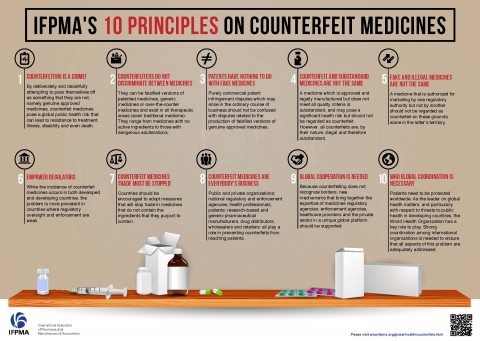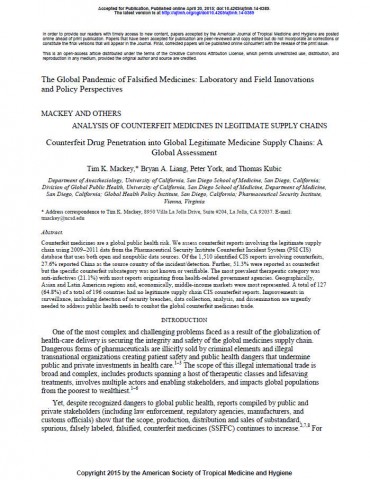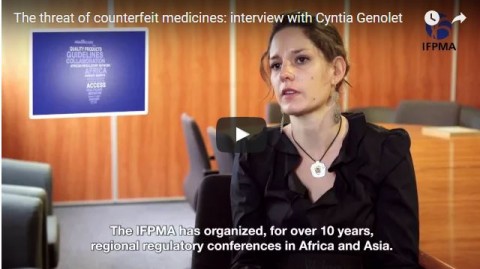Counterfeit Medical Products
Statement by Eduardo Pisani, Director General of the IFPMA, to the 63rd World Health Assembly
Honorable Ministers, Your Excellencies, Madame Director General, Ladies and Gentlemen,
On behalf of the International Federation of Pharmaceutical Manufacturers and Associations, the IFPMA, I welcome the opportunity presented by the World Health Assembly to address the public health issue related to counterfeit medical products. The IFPMA represents the global R&D pharmaceutical industry, whose primary contribution to global health is the development of innovative medicines and vaccines.
Counterfeit medical products are a serious and growing threat to public health worldwide. While many would like to believe that deaths and serious morbidity from counterfeit medical products are isolated occurrences, encounters with such criminal products regularly happen across the world. In 2009, 1,693 incidents of counterfeit medicines were reported by IFPMA member companies. Worryingly, data also showed that counterfeit anti-infectives increased by almost 50% over the previous year. These include anti-malarials.
There are a few truths that need to be stated regarding this issue. Counterfeiters do not discriminate. Fake versions of both generic and branded medicines have entered the supply chain in developed, as well as developing countries. And the internet has facilitated trade in counterfeit medicines, contributing to boost this criminal activity.
Last week, the IFPMA launched Ten Principles on Counterfeit Medicines and invited global support for the protection of patients’ safety. Today, we invite you all to recognize that, first and foremost, counterfeiting of medicines is a crime against patients. We are all patients, therefore we and our families are all at risk. Our Ten Principles also state that patents have nothing to do with counterfeiting, and counterfeiting has nothing to do with patents. The focus of our concerns is on the health consequences of counterfeits, which include disability, illness and even death.
All substandard medicines are not counterfeits, however all counterfeits are by their nature, at high risk of being substandard. This is why combating counterfeit medicines should be an important part of strategies designed for assuring quality, safety and efficacy of medicines in any market of the world.
We believe that cooperation is fundamental, both at the local and the global levels. Because no actor alone can deal effectively with counterfeit medicines, all stakeholders across the pharmaceutical supply chain must be aware and active.
Mr. Chairman, Madame Director General, counterfeit medicines are an obstacle to the attainment by all peoples of the highest possible level of health and therefore the leadership of the World Health Organization becomes fundamental. Thank you.
Geneva, 19 May 2010














